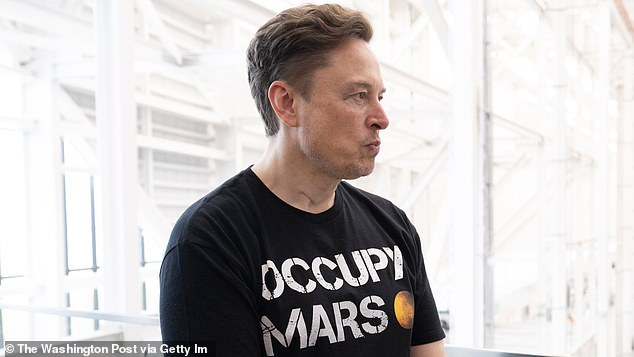Elon Musk‘s Starlink internet is down for users worldwide.
Downdetector, a site that monitors online outages, shows issues hit the SpaceX internet around 1:30pm ET.
Users cited sluggish connections, intermittent service and in many cases, total blackouts.
Musk has previously stated that Starlink’s profits are ‘being used to pay for humanity getting to Mars.’
While it’s unclear how much revenue the company generates daily, a widespread service disruption could pose a setback to those lofty interplanetary ambitions.
Some analysts project that Starlink could be valued at around $150 billion, considering factors such as projected revenues and market conditions, but the company has not made an official announcement.
Downdetector shows disruptions across the US, impacting users in Dallas, San Francisco, Phoenix, Chicago, Atlanta, Minneapolis and Washington DC.
Parts of South America, the UK and Australia are also experiencing issues.

Elon Musk’s Starlink internet is down, impacting users across America. Downdetector, a site that monitors online outages, shows issues hit the SpaceX internet around 1:30pm ET
The outage has left many customers frustrated, with many posting on Musk’s X how this is the second outage in just the past few weeks.
‘Starlink down, apparently, widespread. Website unresponsive. July 25, unexpected outage, never really explained. Again, today, Aug 18. What’s up?’ one user shared on X.
Another Starlink customer posted: ‘Looks like @Starlink is down again. We’ve had more outages in the last month than in the last 5 years combined.’
Starlink’s Residential plan costs $120 per month, while the Residential Lite plan costs $80 per month.
There are also Roam plans for users who need internet on the go, with prices ranging from $50 to $165 per month. And the standard Starlink kit costs $349 plus shipping.
In May, Musk unveiled bold new plans for SpaceX’s strategy to colonize Mars, detailing what he called the next phase in space exploration.
While much of the presentation focused on landing a Tesla Optimus robot in 2026, the billionaire announced that SpaceX will also send Starlink satellites to provide internet to those who choose to live on the Martian world.
‘Ideally, we’ll be able to take anyone who wants to go to Mars,’ he said. ‘And bring all the equipment needed to make it self-sustaining, to let it grow on its own.’
The goal, he emphasized, is to ship enough resources to the Red Planet so that if supply missions from Earth suddenly stop, life on Mars can continue uninterrupted.
‘Having two strong, self-sustaining planets will be critical for the long-term survival of civilization,’ Musk added.
He believes a multiplanetary existence could extend humanity’s lifespan tenfold.
This article was originally published by a www.dailymail.co.uk . Read the Original article here. .

